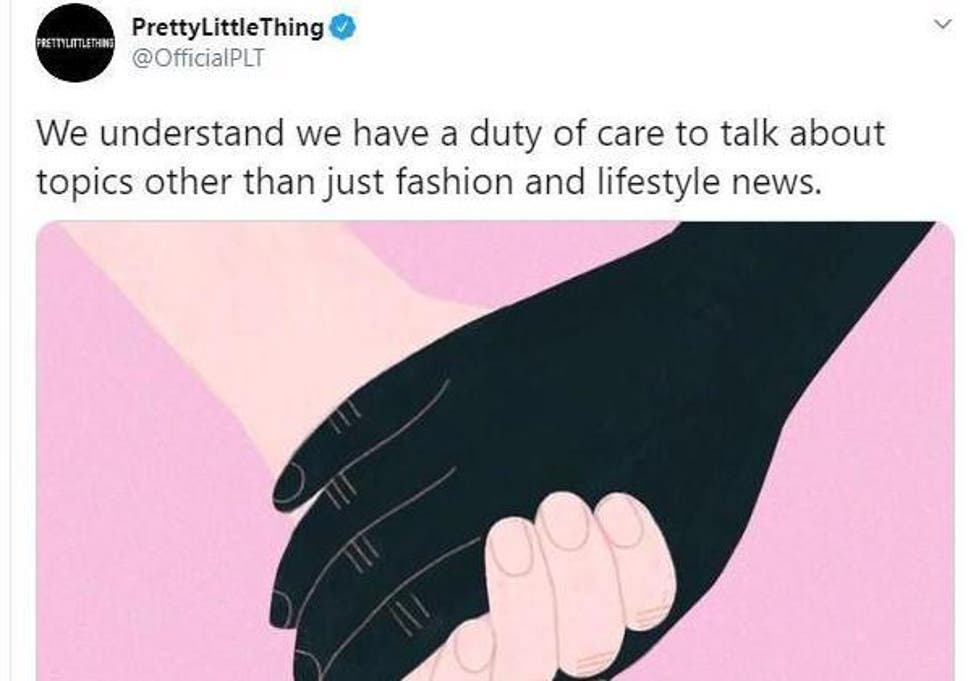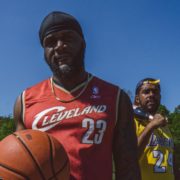My Blackness Is Not For Sale: What Brands Should Be Doing To Combat Racial Oppression

We are all aware of the devastating news of the brutal murder of George Floyd by white police officer Derek Chauvin with the help of his white colleagues. This has broken our hearts and has rightfully caused outrage, anger and protest in the US and in the UK and various other locations. Those that have not been able to attend protests have taken to social media to share the news, say his name and stand in unity with the Black Lives Matter movement as well as signing petitions which you can sign here. With this in mind, we have all been wary and questioning the silence of our white counterparts during this difficult time. The brands we support and buy from, the friends we laugh with and care about.

With many black people feeling frustrated and angry about the consistent injustice faced by black people all over the world, the murder, the police brutality and the systematic racism that runs through every culture on this planet, silence sends out a particularly hard to swallow message, do black lives only matter when it comes to consuming our culture? For decades upon decades, we have seen white companies, musicians, fashion brands etc appropriate, steal and benefit from black culture that is often not received in such a positive light as when it comes from non-black people. From erasing the cultural background and tradition in order to label it as something cool and western, to using black lingo in order to send across a message of being cool and “urban”. All of these things being done whilst still giving little to no recognition to black people for their innovation, creativity and struggle. To see these same brands that benefit from black culture remaining silent once the hard and harsh truth hits is extremely disturbing.
One brand in particular that has received backlash is fast fashion brand Pretty Little Thing. News spread like a forest fire regarding their very poor attempt to send out an appropriate message to show they too are outraged by the continuous injustice and are willing to use their platform to spread awareness. Pretty Little Thing posted a graphic featuring one white hand and a black hand together. Along with a capture “We understand we have a duty of care to talk about topics other than just fashion and lifestyle news.” the capture didn’t mention anything about the injustice and what the company aims to do to help as a platform with great influence. The post left alot to be desired and consumers shocked at the lack of effort the brand put into the graphic. The brand later deleted the post and reposted with a more appropriate graphic after being called out by various people including influencer and Youtuber Jackie Aina who has consistently spoken openly about issues faced in the black community and has always used her platform to support black brands and causes.

Alot of the uproar and disappointment came from PLT’s use of a literally black hand used to represent black people not only was the hand literally black but the nails were also black whilst the white hand had a realistic depiction of the skin colour of a white person. This post represents just what we are all fighting for, the humanisation of black people for people to see that we hurt too and our skin colour is not a threat or a trend. This brings up again the issue of lack of awareness and misrepresentation prevalent in the fashion industry seen through the lack of black models used in PLT campaigns whilst using a host of black references.
Pretty Little Thing are not the first company to miss the mark and they won’t be the last. The overall common issue is the cherry-picking of black culture many brands participate in whilst having a complete lack of awareness that tends to scream out and reveal its ugly head in dire situations like this.
So what do black people want from brands right now?
1. Firstly to address the situation in a conscious, genuine and socially aware manner, this requires research and genuine care about the people who allow your business to thrive. The same if not more energy celebrities, brands and corporations used to rush to donate and speak out about the Notre dame is the same level of energy required to help fight racism. If we were all as outraged about the injustice and murder of human beings as a building the fight against racism would be won.
2. Following on from this, reflecting on the diversity within your company. Asking questions such as why don’t we have enough black employees? Do we create safe spaces for black employees tp speak out about their experiences and the microaggressions they are likely to face on a daily basis? Are we educating our non-black employees on how to tackle their own racist thought and how as a company are we allowing anti-blackness to thrive, how can we reverse this damage? Reflecting on all of these questions may be a gruelling process but may reveal some of the things that need to be worked on. After all education and awareness is the start of progress.
3. Thirdly to use your platform to spread awareness to not just the black people but non-black consumers, non-black employees, non-black shareholding and investors. These are the people who need to hear this and will help create waves in the movement.
When addressing these matters on social media let this not be another case of ticking a box but actually putting your money where your mouth is donating and setting measures in place to act on this and use it as a catalyst for change and not a PR stunt to gain attention.
Lastly, I would just like to say here at GUAP our thought are with George Floyd’s family as well as the thousands of other black people murdered by the police and/or affected by some form of systematic racism. I urge all black people in this time to do what you can, talk about it with your white peers and colleagues makes waves and make people uncomfortable because we need change but its also take some time off social media and look after yourself.




![ZINO VINCI’S ‘FILTHY & DISGUSTING’EP BRINGS YOU TO THE CORE OF THE ARTIST [@ZinoVinci]](https://guap.co/wp-content/uploads/2023/10/Zino-4.jpg)



